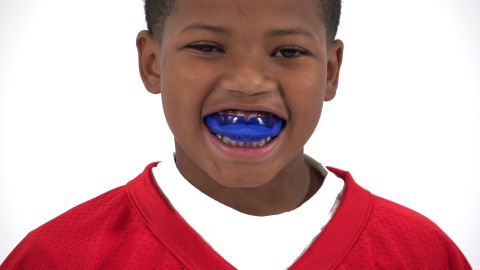For kids actively involved in sports, mouthguards can protect their teeth from getting cracked, chipped or knocked out during an impact. A dentist can custom fit a mouthguard that molds to the child’s mouth and protects the top row of teeth.
When You’re Most at Risk
The American Dental Association (ADA) explains that your top teeth typically take the brunt of the impact during a mouth injury because they extend further out than the bottom row of teeth. In contact sports like hockey, football, karate and boxing, it’s vital to protect your teeth.
Protect Braces and Dental Work
If you’re active in sports and wearing braces, the orthodontic brackets and fixtures of your braces may be at risk for damage. A mouthguard can protect them along with your teeth and also keep your cheeks and lips from getting cut during injury.
In addition to orthodontics, after making a considerable investment in crowns and bridgework, it only makes sense to protect them against possible injury.
How to Take Care of Mouthguards
The ADA suggests keeping your mouthguard clean and dry by following this routine:
- Rinse or brush it with a toothbrush and toothpaste after every use.
- Clean it regularly with soap and cool water and rinse thoroughly.
- During dental visits bring it for cleaning and evaluation regarding fit.
- Store and transport it in a sturdy container with vents.
- Never leave it in the sun or in hot water.
- Replace your mouthguard when it becomes worn.
Discuss Mouth Protectors with Dr. Baker
Depending on what you can afford, there are three types of mouth protectors:
- The custom-made option is ideal because it is designed for comfort and fit.
- Boil and bite are another option that you can buy at sporting goods stores. You boil the mouthguard in water to soften it and then insert it and let it mold to the shape of your mouth.
- The stock mouth protector costs the least, but also comes pre-formed and may not fit your mouth very well, therefore making talking and breathing more difficult.
Dr. Baker can explain in greater detail how mouthguards can protect your teeth and help you choose the right option.







Recent Comments